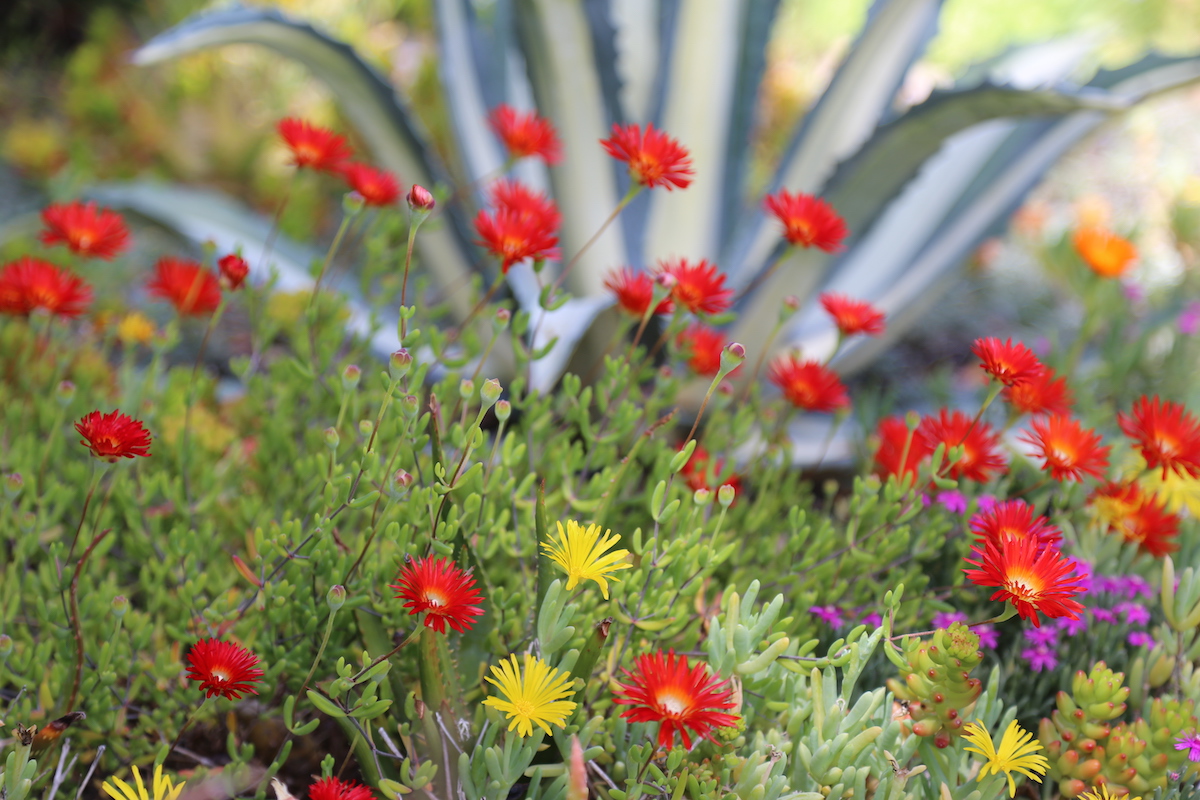
Gap Fillers for New Succulent Gardens
Hi Debra,
I’m a new subscriber and am enjoying binging your videos. What should I do to fill garden gaps while waiting for succulents to get big? I've put in a variety and left room for future growth. How can I make my new garden look finished? -- Kimmi C.
Hi Kimmi -- I have several ideas for you, but first, what are you doing to control weeds? It's so important! The thing is...
Bare soil + water + sun = weeds
In spring weeds are fairly easy to remove: Scrape the ground to uproot green shoots. Hoe larger ones. Don't delay; by summer, when soil is no longer rain-soft and friable, weeds are tall, well-anchored and spitting out seeds.
Get 'em then prevent 'em. Spread pre-emergent herbicide (affiliate link), a granular that stops seeds from germinating. I can't emphasize this enough. Whenever I forget to apply "pre-emergent" around newly planted, in-ground succulents, I regret it. Weeds are sneaky, insidious and determined. Well, so am I. This is war.
Drum Roll...Three Simple Garden Gap-Fillers
(1) Plant a succulent ground cover, perhaps one of many ice plants coming into bloom. Spring is the best time to see them in gardens and nurseries. Edit these spreading plants as larger succulents need more space. See different ice plant varieties here on my site and on my YouTube channel:
(2) For a low-growing gap filler in shady areas, you can't beat fairy crassula. It fills in fast, blooms midwinter, trails nicely, and is easy to pull out. Often it's free---find a neighbor who has it and ask for cuttings. See the article here on my site or watch the video...
(3) Perhaps the easiest gap-filler is to topdress bare areas with crushed rock. Gravel makes any newly planted garden look finished right away, smothers weeds, holds moisture in the soil, and doesn't deteriorate like organic (bark) mulches. From an article on my site about a renovated succulent garden:
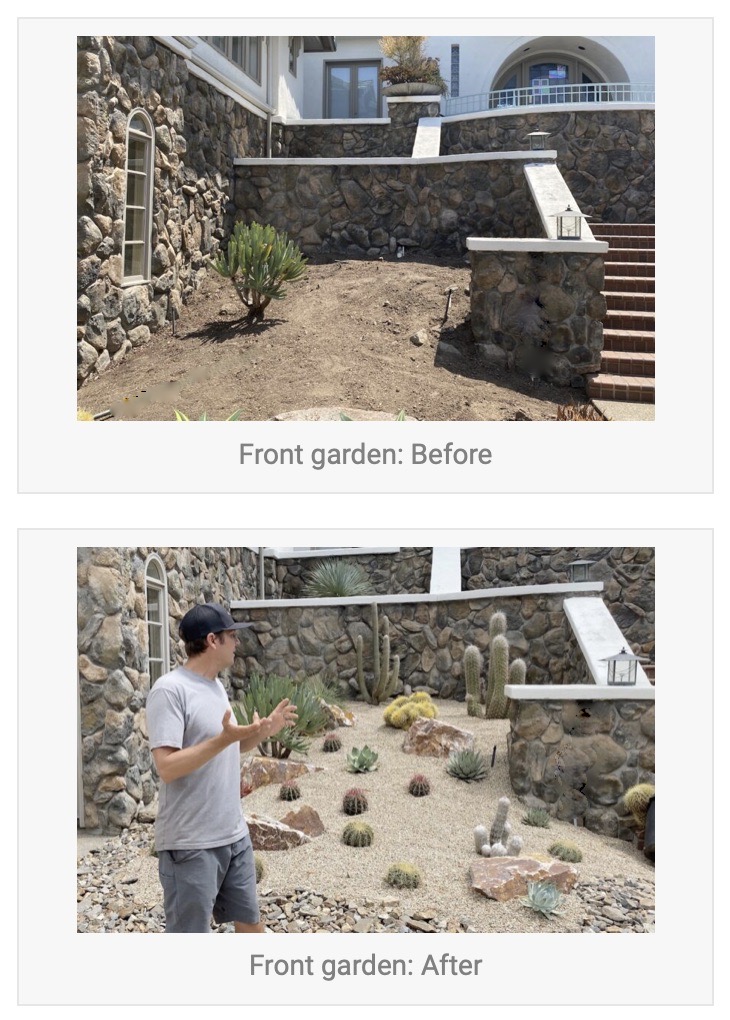
Newly planted succulent garden before planting and after. Design by Steve McDearmon of Garden Rhythms.
Above: If you were a weed, trust me, you'd definitely prefer the "Before." Once soil is topdressed, seeds that land find it difficult to germinate, root, and photosynthesize. (Evil cackle.)
Related Info on this site
Ice Plant Uses, Photos and IDs
Ice Plant Uses, Photos, and Varieties What you need to know to successfully select and grow ice plants. Gallery of warm-climate varieties, all ID’d See All Succulent Types Aeonium Agaves Aloes Cactus Crassula Echeveria Euphorbias Ice Plants Kalanchoe Portulacaria Senecio See the Video About Ice plants Succulent ice plants have in common shimmering, daisylike flowers.…
Why You Really Need Rocks
Smart designers cover bare soil with rocks in succulent gardens that are as sophisticated and good-looking as they are practical.
Grow Shade-Loving Fairy Crassula
Fairy crassula (Crassula multicava) is a great succulent ground cover for shade. In winter, like jade (Crassula ovata), it has dainty star-shaped, pinkish-white flowers. Here are 15+ reasons to grow it in your garden.

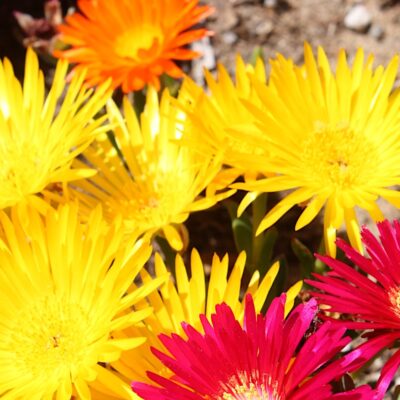
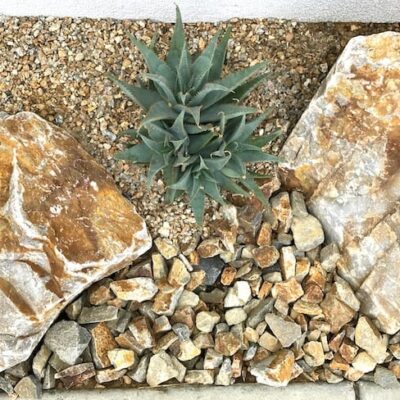
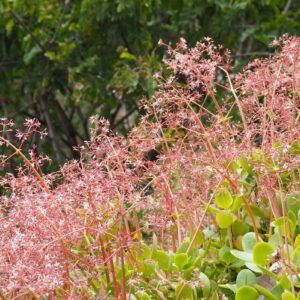
Hello ~
I always enjoy your tips and and expertise, and learn so much from your videos and postings. Regarding your #1 recommendation of pre-emergent herbicides, aren’t these and other chemical products harmful to microorganisms in the soil, or toxic to invertebrates? I had always thought so, but would love to be told I’m wrong!
Thank you,
KB
DEBRA replies: Great question! Basically pre-emergent herbicide stops seeds from germinating. As a garden chemical, it’s safer than most, much safer than Round-Up (which you won’t need if you use this).